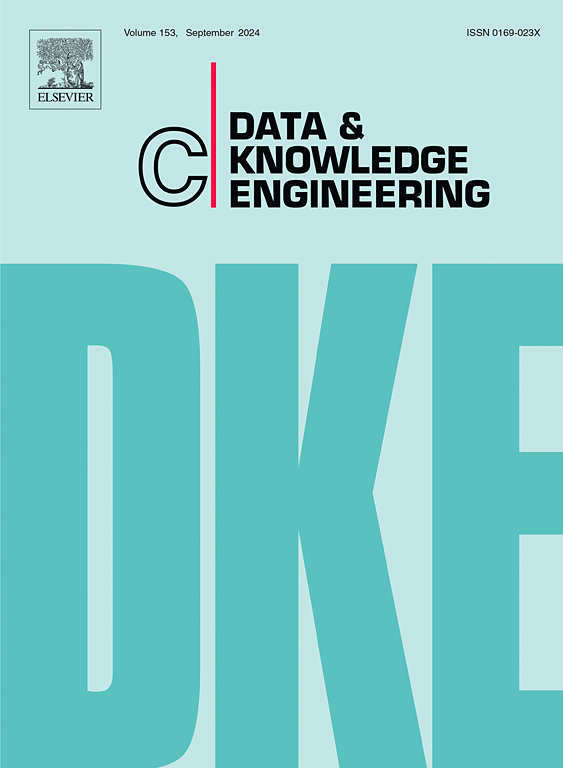逻辑注入的知识图QA:通过Prolog集成增强专门领域的大型语言模型
IF 2.7
3区 计算机科学
Q3 COMPUTER SCIENCE, ARTIFICIAL INTELLIGENCE
引用次数: 0
摘要
有效地回答复杂的、特定于领域的知识图上的问题仍然是一个重大挑战,因为大型语言模型(llm)通常缺乏逻辑推理能力和此类任务所需的特定知识。本文提出了一个集成法学硕士和逻辑编程语言(如Prolog)的框架,用于在特定领域的逻辑注入知识图问答(KGQA)。提出的方法使用基于变压器的编码器-解码器架构。编码器读取问题,命名实体识别(NER)模块将实体连接到知识图。提取的实体被输入到语法引导的解码器中,生成捕获语义约束和关系的逻辑形式(Prolog查询)。Prolog查询在知识图上执行符号推理并检索相关的答案实体。在MetaQA基准数据集上的综合实验表明,这种逻辑注入的方法在从知识图中准确识别正确答案实体方面具有优越的性能。即使在有限的注释数据子集上进行训练,它也优于最先进的基线,达到89.60%,f1得分高达89.61%,显示了它在增强大型语言模型方面的有效性,该模型具有用于专门问答任务的符号推理能力。法学硕士和逻辑编程的无缝集成使所提出的框架能够对复杂的、特定领域的知识图进行有效的推理,克服了现有KGQA系统的一个关键限制。在专门的领域中,通过表示问题(如Prologue查询)提供的可解释性是一项有价值的资产。本文章由计算机程序翻译,如有差异,请以英文原文为准。
Logic-infused knowledge graph QA: Enhancing large language models for specialized domains through Prolog integration
Efficiently answering questions over complex, domain-specific knowledge graphs remain a substantial challenge, as large language models (LLMs) often lack the logical reasoning abilities and particular knowledge required for such tasks. This paper presents a novel framework integrating LLMs with logical programming languages like Prolog for Logic-Infused Knowledge Graph Question Answering (KGQA) in specialized domains. The proposed methodology uses a transformer-based encoder–decoder architecture. An encoder reads the question, and a named entity recognition (NER) module connects entities to the knowledge graph. The extracted entities are fed into a grammar-guided decoder, producing a logical form (Prolog query) that captures the semantic constraints and relationships. The Prolog query is executed over the knowledge graph to perform symbolic reasoning and retrieve relevant answer entities. Comprehensive experiments on the MetaQA benchmark dataset demonstrate the superior performance of this logic-infused method in accurately identifying correct answer entities from the knowledge graph. Even when trained on a limited subset of annotated data, it outperforms state-of-the-art baselines, achieving 89.60 % and F1-scores of up to 89.61 %, showcasing its effectiveness in enhancing large language models with symbolic reasoning capabilities for specialized question-answering tasks. The seamless integration of LLMs and logical programming enables the proposed framework to reason effectively over complex, domain-specific knowledge graphs, overcoming a key limitation of existing KGQA systems. In specialized domains, the interpretability provided by representing questions such as Prologue queries is a valuable asset.
求助全文
通过发布文献求助,成功后即可免费获取论文全文。
去求助
来源期刊

Data & Knowledge Engineering
工程技术-计算机:人工智能
CiteScore
5.00
自引率
0.00%
发文量
66
审稿时长
6 months
期刊介绍:
Data & Knowledge Engineering (DKE) stimulates the exchange of ideas and interaction between these two related fields of interest. DKE reaches a world-wide audience of researchers, designers, managers and users. The major aim of the journal is to identify, investigate and analyze the underlying principles in the design and effective use of these systems.
 求助内容:
求助内容: 应助结果提醒方式:
应助结果提醒方式:


